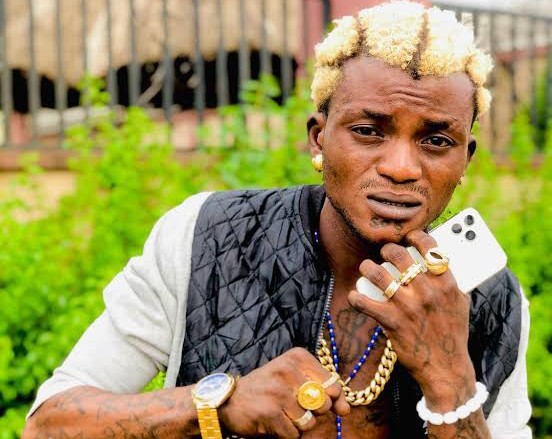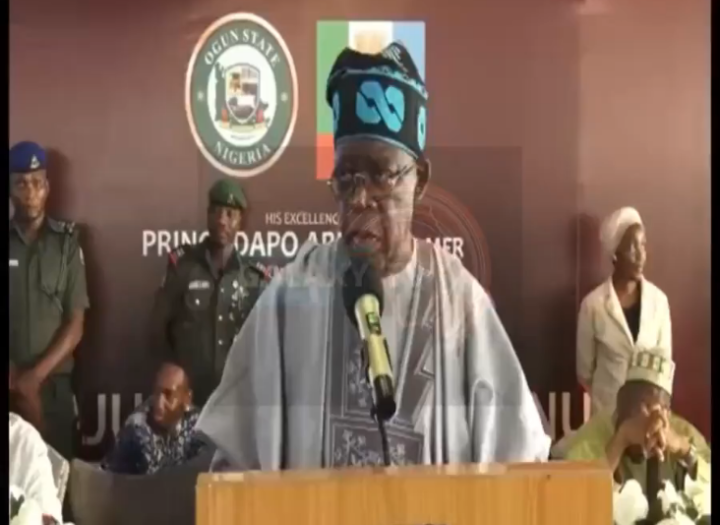Economy
Tinubu’s policies signpost differences with govt

By Uche Chris
Yesterday’s report credited to the national leader of the APC, Asiwaju Bola Ahmed Tinubu, though may surprise many people, has however, become symptomatic of the organizational dysfunction and policy conflicts in the President Buhari led APC government. As the national leader of the party, Tinubu’s frequent public interventions in government policies epitomize the fractious and apparent fundamental differences between the party and government.
Tinubu was quoted to have called on the federal government to reduce interest rates on bank credit as a result of the five week-lockdown occasioned by the Coronavirus pandemic and the consequent down turn in the economy; as well as charging the Central Bank of Nigeria, CBN, to seek opportunities for more external borrowing. Apart from a lack of clear understanding of the critical economic and financial dynamics of the issues, it sends out a wrong signal about the government which he is a national leader.
It is one policy difference too many for the government and the party which his recent positions have come to characterize, and suggests convincingly the widening gulf between the nation’s political leadership. As the leader of the APC it is traditional and expected for him to have a hot line communication link with the president; but the frequent public policy interventions point to either a lack of personal communication synergy between the two leaders or an emerging and growing policy opposition to the government.
As a Nigerian he is entitled to his opinion on any issue of public interest; but as the leader of the party in power, such opinion should be circumscribed by party cohesion and policy uniformity to avoid misconception of divisions and ill-will. In the absence of this only a certain conclusion would be inevitable: That there may be a lack of access and a present political difference between the leaders, because it is unusual for the leader of a party in government to be acting as an opposition figure. There must be something to it than meets the eyes.
When a leader of a government takes a contrary position to it, he not only undermines the confidence, capacity and legitimacy of the government to manage the situation, but also jeopardizes its ability to pursue other policy options that may emerge from feedbacks and evaluations of current policies. However, it may have more to do with a lack of access to the president given his reclusive style of leadership especially in the absence of a substantive Chief of staff.
In several instances, the national leader of the APC had taken quite opposing and surprising positions from government policy. This recent one is not the first, and may indicate a distancing of Tinubu from the glaring failure of this government as 2023 approaches. Last year as the controversy over the hike in value added tax, VAT, was on, he had cautioned government to retrace its step to avoid inflicting further hardship on the people. Although many people hailed his position, it underlined a clear partisanship given the precarious revenue situation of the government. Government was desperate and needed more funding sources to improve revenue.
Again, at the heat of the covid 19 lockdown some weeks ago, and given the obvious government failure to deliver on its promised palliatives, Tinubu had also tasked government to do the needful by meeting its obligations to the people, as if government possessed the magic wand to do so. The truth which Tinubu, as a leader of the party that produced the government, should have known is that the government is broke and could not possible do it; and also lacked the structure and logistics to accomplish the purpose.
It also showed that Tinubu has not been aware of the massive corruption and nepotism going with the Social Investment scheme which was exposed b senate recently. As lawyers are wont to say; you don’t build something on nothing. The Social investment scheme has been another fraud against Nigerians.
For a leader of his caliber, it is unfortunate, the former Lagos state governor, with the array of human resources at his disposal could make such basic economic and financial howler in the statement. Management of interest rate is a function of several economic variables particularly inflation which move in opposite directions. To reduce interest rate when inflation is also rising now at 12.2 percent is to court disaster. They are used to moderate each other.
Secondly, it is not in government plate to tinker with the interest rate; it is a monetary instrument used by the CBN and all central banks to modulate prices. Nigeria is not a socialist economy where government decides everything, including the very basic. This is market economy which requires institutional and policy freedom and independence to determine outcomes.
Again the suggestion that CBN should seek external borrowing is also a major gaffe that is defeats his status; how could a man who desires to rule this country not know that the CBN lacks the statutory power to enter into any loan agreement with any foreign organisation. Except for loans by purely businesses, which are underwritten by their banks, all other borrowings are guaranteed by government, for the banks through the CBN. What this means is that only the government can legally contract loans or credit facility.
It appears Tinubu is in a sort of competition with the opposition candidate in the last presidential election, Alhaji Atiku Abubakar, on proposing policy alternatives to government position. If Atiku is challenging the government on its policies, it is his right to do so as an opposition; for Tinubu it is anomalous and can only be associated with 2023 election which Atiku may also be a candidate, and he is angling to participate in also.
According a financial consultant, Dr. Boniface Chizea, in a reaction, Tinubu’s policy position is untenable.
“At best we could use purchasing power parity to compare relative values. So we must endeavour to avoid joining the bandwagon to chorus over valuation. There is also no market for dollar in Nigeria. What market is that with only one dominant supplier? Once the economy is challenged with earning commensurate volumes of dollars and the External Reserves are under pressure, the clamour to align the exchange rate of the Naira attains a crescendo.
“And whenever we are pressured to relax the controls, the exchange rates go southward precipitating a spike in the rate of inflation with all the disruptive consequences of such a development as macroeconomic stability is undermined. When this happens the CBN would now be left to stem the fall”, he said.
The other policy recommendations by Tinubu such as reform of the mortgage market are in order and complement aspects of the package of policy thrusts which are in consideration for implementation. The moral of this reaction is that prominent stakeholder should avoid grandstanding by fishing in uncharted and unfamiliar terrain. Thanks
Incidentally, apart from the news relevance of the interventions, none of such has produced any policy change or improved performance, suggesting how serious he is taken and regarded in government. Instead of having effect in the conduct of governance, such public statements by Tinubu are actually diminishing his political stature as the party leader and his influence in government. It is time his public affairs minders put a leash on his posturing to save his political future because in the end some of these blunders may be his albatross.








